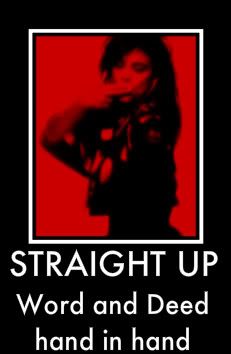
Moderators: Elvis, DrVolin, Jeff
barracuda wrote:Your analogy seems flawed, in that the psyop must actually be poised against the general cultural grain - the creativity of individuals, invention, the zeitgeist itself, literary, musical and artistic output, etc., which is orders of magnitude larger in scope than the size any psyop campaign could possibly attain. Maybe it's more like Coke versus water or even all other liquids.
barracuda wrote:Yeah, but since in the real market, Pepsi has a smaller share than Coke...
.....
Hugh Manatee Wins wrote:Psyops is just advertising. It's that simple.
It's the same as Coke vs Pepsi where authority/power is Coke and anything that impedes Coke's market share is Pepsi.

Hugh Manatee Wins wrote:barracuda wrote:Yeah, but since in the real market, Pepsi has a smaller share than Coke...
.....
Of course progressive humanists (Pepsi) have a smaller visibility market share than power (Coke)!!
That's entirely accurate. Rush Limbaugh and Glen Beck will always have a market share that is much bigger than Peter Dale Scott or Richard Gage.
And you were right about this except from my analogy being flawed and the
"general cultural grain" being "larger". Remember, visibility and mainstream media are entirely different than the real population. That's the point!-Your analogy seems flawed, in that the psyop must actually be poised against the general cultural grain - the creativity of individuals, invention, the zeitgeist itself, literary, musical and artistic output, etc., which is orders of magnitude larger in scope than the size any psyop campaign could possibly attain.
barracuda wrote:.....
but the impact on the world of someone like Peter Dale Scott or Leon Panetta and his entire Langley crew are dwarfed by the cultural contribution of a single individual on the order of Jackson Pollock or Igor Stravinsky.

*A Book Review*
Confessions of an Advertising Man
By David Ogilvy
by Michael C. Gray
October 4, 2006
Confessions of an Advertising Man is included on most "required reading" lists of advertising classics, and has just come back in print.
David Ogilvy is one of the role models of advertising.
A Scotsman, he was expelled from Oxford in 1931. Then he went through a succession of careers – a chef in Paris, a door-to-door salesman, a social worker in the Edinburgh slums, a research associate of Dr. Gallup for the motion picture industry, an assistant to Sir William Stephenson in British Security Co-ordination, and a farmer in Pennsylvania.
Then he founded Ogilvy, Benson & Mather and built it in short order into one of the largest and most respected advertising agencies in the United States.
Confessions of an Advertising Man is the "little red book" of advertising, containing distilled wisdom of years of research, testing and experience.
According to David Ogilvy, new recruits for the agency went through a training program consisting of a "magic lantern" (projected photo slide) show of the basic principles and practices of the agency. Those who weren’t enthusiastically in agreement with the training were invited to leave. The information from those photo slides has been incorporated into this book.
Ogilvy’s philosophy was, "once a salesman, always a salesman." Advertising that doesn’t sell a product or service is worthless. He avoided having company ads submitted for artistic awards. Winning one would be an embarrassment.
He was an able copywriter, and some of his ads became classics. (See reprints in his other book, Ogilvy On Advertising.) Two of his famous headlines were "At 60 miles an hour the loudest noise in this new Rolls-Royce comes from the electric clock" and "The man in the Hathaway shirt".
Ogilvy also emphasized the importance of research in creating effective ads. He felt his experience working with Gallup contributed as much to his success as his selling experience.
Since Ogilvy’s goal was for the agency’s advertising to be effective at selling, he admired and studied direct response advertisers, who test and measure everything and whose companies live or die based on the effectiveness of their ads.
Ogilvy discusses every aspect of the advertising business as it was in 1963 – How to Manage an Agency, How to Get and Keep Clients, How to Build Great Campaigns, How to Write Potent Copy, How to Make Good Television Commercials, How to Work Your Way to the Top. If you don’t care about the other topics, you should definitely read How to Be a Good Client. (Leave our stuff alone!)
David Ogilvy infused this book with his warm character, showing the gentle humor of a true English gentleman. He passed away in 1999 at age 88, and is greatly missed.
Abstract
Research examining the relation between explicit and implicit forms of memory has generated a great deal of evidence concerning the issue of multiple memory systems. This article focuses on an extensively studied implicit memory phenomenon, known as direct or repetition priming, and examines the hypothesis that priming effects on various tasks reflect the operation of a perceptual representation system (PRS)—a class of cortically based subsystems that operate at a presemantic level and support non conscious expressions of memory. Three PRS subsystems are examined: visual word form, structural description, and auditory word form. Pertinent cognitive, neuropsychological, and neurobiological evidence is reviewed, alternative classificatory schemes are discussed, and important conceptual and terminological issues are considered.

Users browsing this forum: No registered users and 5 guests